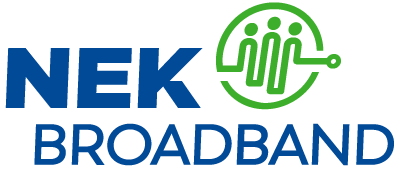
Fast, affordable Internet access for all.

Today, the National Telecommunications and Information Administration (NTIA) announced how it will allocate $42.5 billion in BEAD funds to all 50 states, the District of Columbia, and five territories.
At an “Investing in America” event today at the White House, President Biden noted that this “biggest investment in high-speed Internet ever” was noteworthy “because for today’s economy to work for everyone, Internet access is just as important as electricity was, or water or other basic services.”
And in a press statement, Assistant Secretary of Commerce for Communication and Information Alan Davidson, who is overseeing the NTIA program, added: “This is a watershed moment for millions of people across America who lack access to a high-speed Internet connection. Access to Internet service is necessary for work, education, healthcare, and more. States can now plan their Internet access grant programs with confidence and engage with communities to ensure this money is spent where it is most needed.”
Our initial reaction is as follows:
"The BEAD allocations amount to the largest ever single federal investment to deploy needed Internet infrastructure across the United States. The question now is: how many states will maximize the moment and be inclusive of municipal broadband, public-private partnerships, and community-driven initiatives vs. those states who will simply dole out the funds to the big monopoly providers and hope for the best?”
Concerns are mounting that over $2.8 billion in potential broadband grants doled out by the Federal Communications Commission’s (FCC) Rural Digital Opportunity Fund (RDOF) could be wasted, further eroding the already well-criticized program’s disjointed effort to expand broadband access across rural America.
In 2019, the Ajit Pai FCC created the $20.4 billion RDOF with an eye on shoring up affordable broadband access in traditionally unserved rural U.S. markets. The money was to be doled out via reverse auction in several phases, with winners often declared based on having the maximum impact for minimum projected cost.
During phase one of the program, the FCC stated that 180 bidders won $9.2 billion over 10 years to provide broadband to 5.2 million locations across 49 states and the Commonwealth of the Northern Mariana Islands. But of the $9.2 billion in winners, over $2.8 billion has gone into default, meaning the bidder couldn’t actually deliver on promised projects.
We've tracked the RDOF awards since the auction concluded, including for the providers that defaulted on their wins.
These issues have not only imperiled RDOF program funding, but have thrown a wrench in the works of numerous additional government efforts to shore up broadband access, from the FCC’s long-criticized quest to accurately map U.S. broadband access, to the implementation of newer grant programs overseen by other agencies.
In Wisconsin, Republican state lawmakers voted earlier this month to kill Gov. Tony Evers’ plan to invest $750 million of Wisconsin tax dollars to expand high-speed Internet infrastructure across the Badger State.
Republicans on the state legislature’s budget committee voted to reject the proposed broadband funds, arguing that the state should wait for Wisconsin’s forthcoming share of the $42.5 billion in federal BEAD funds instead.
Although the state has a record budget surplus projected at more than $7 billion, it’s the first time in the past decade the GOP-controlled state legislature has not allocated funds to expand broadband, which drew a blunt rebuke from Evers spokesperson Britt Cudaback.
“It’s outrageous that Republicans have absolutely nothing to show for plans to actually address the pressing challenges facing our state — embarrassing doesn’t begin to cover it,” Cudaback told the Wisconsin State Journal.
The state is expecting to receive between $700 million and $1.1 billion in BEAD funds from the bipartisan Infrastructure Investment and Jobs Act (IIJA) with the state's Public Service Commission (PSC) estimating the total cost of deploying expanded broadband infrastructure statewide to be about $1.8 billion.
The United States Department of Agriculture (USDA) has awarded a $17.5 million grant to NEK Community Broadband (NEK Broadband), providing another shot in the arm for Vermont’s fast-growing collection of Communications Union Districts (CUDs). Such CUDs continue to play a starring role in Vermont’s efforts to finally conquer the digital divide.
NEK Broadband’s latest grant comes from the USDA’s ReConnect Loan & Grant Program, which helps defray the costs of network hardware and broadband deployment to rural and traditionally underserved U.S. markets.
The program this week doled out an additional $714 million in grants and loans to projects across 19 states.
NEK Broadband officials say its $17.5 million award will be combined with a $5.8 million investment to deliver affordable fiber access to 3,295 homes, 94 businesses, 183 farms and 11 educational facilities across 22 towns in Orleans, Caledonia, and Essex counties in Vermont.

“For too long, large pockets of our state have been denied this critical resource because companies haven’t found it profitable enough to invest,” Vermont Senator Bernie Sanders said in an announcement of NEK’s latest grant. “This federal funding is transformative, because the money is going directly to the very communities who will benefit, instead of having to go through those who care more about profits than delivering service.”

It's strange to see the FCC continually patting itself on the back for releasing a new national broadband map. Spend just a little bit of time with it, and the cracks and holes quickly show themselves. This week on the podcast, Christopher is joined by Christine Parker, Senior GIS Analyst at ILSR, and Alexis Schrubbe, Director of the Internet Equity Initiative at University of Chicago. They do a deep dive into the many, many problems that persist - from bad ISPs claiming service to locations where they have no presence, to missing locations, to the mountain of work the FCC has offloaded onto the rest of us in fixing a map that it paid a lot of money to assemble.
Christopher, Alexis, and Christine also untangle the ongoing challenge process for unserved, underserved, and served locations, and the timeline that states have in preparing to subgrant hundreds of millions in BEAD dollars starting in 2024. It's not all bad news - they end the show by talking about what state broadband offices, individuals, nonprofits, and others can do to band together, find good partners, and make sure their community gets counted in our national broadband service census.
This show is 38 minutes long and can be played on this page or via Apple Podcasts or the tool of your choice using this feed.
Transcript below.
We want your feedback and suggestions for the show-please e-mail us or leave a comment below.
Listen to other episodes here or view all episodes in our index. See other podcasts from the Institute for Local Self-Reliance here.
Thanks to Arne Huseby for the music. The song is Warm Duck Shuffle and is licensed under a Creative Commons Attribution (3.0) license.

Join us Friday, May 26, at 2pm ET for the latest episode of the Connect This! Show. Co-hosts Christopher Mitchell (ILSR) and Travis Carter (USI Fiber) will be joined by regular guests Kim McKinley (UTOPIA Fiber) and Doug Dawson (CCG Consulting) to talk about all the recent broadband news that's fit to print. They'll chat about Gigapower, Anna Gomez' nomination to the FCC, and more.
Email us at broadband@communitynets.org with feedback and ideas for the show.
Subscribe to the show using this feed or find it on the Connect This! page, and watch on LinkedIn, on YouTube Live, on Facebook live, or below.
The NTIA (National Telecommunications and Information Administration) insists that the 17 state laws that hamper nationwide community broadband deployments won’t delay a massive looming infusion of infrastructure broadband subsidies. But one industry group isn’t so sure.
BroadbandNow, a website dedicated to tracking the U.S. broadband industry, issued a report claiming that state restrictions on community broadband networks could delay the delivery of more than $42.45 billion in BEAD (Broadband Equity, Access and Deployment) grants made possible by the recently-passed Infrastructure Investment and Jobs Act (IIJA).
Such bills, often ghost written by the telecom industry by policy and lobbying intermediaries, often limit the construction or financing of community broadband networks, even in unserved areas that regional telecom monopolies have long neglected.
Covid’s home education and telecommuting boom highlighted the restrictive and often counterproductive nature of such bills, leading two states — Arkansas and Washington — to remove the barriers. And in Colorado earlier this month, Gov. Jared Polis signed Senate Bill 23-183 into law that eliminates an older 2005 law backed by regional telecom monopolies, which imposed cumbersome and onerous restrictions on Colorado towns and cities looking to build better, more affordable community-owned and operated broadband networks.
Kentucky is one of many states undergoing a baptism by fire as they jocky to take advantage of billions in historic federal broadband grants. The Kentucky Office of Broadband Development didn’t exist a year ago; now it’s tasked with identifying state broadband gaps and managing one of the most complex broadband subsidy efforts ever attempted.
All while shaking off a history of costly state boondoggles.
Kentucky officials last year announced they’d be spending more than $203 million in American Rescue Plan Act (ARPA) funds to shore up broadband access. Now they’re preparing to spend hundreds of millions more courtesy of $42.5 billion in Broadband Equity, Access and Deployment (BEAD) grants made possible by the Infrastructure Investment and Jobs Act (IIJA).
Kentucky Office of Broadband Officials have spent the last few months on a listening tour getting an earful from frustrated state residents angry about high broadband prices, spotty coverage, and sluggish speeds. Kentucky currently ranks 30th nationwide in such metrics thanks in part to monopolization by local cable and phone giants.
Like so many states, the lack of affordable, reliable broadband access was particularly notable during the Covid home education and telecommuting boom, driving a renewed interest in creative broadband deployment alternatives.
Avoiding The Sins Of The Past
Past Kentucky efforts to bridge the digital divide haven’t gone particularly well.
Two months after President Biden’s belated and long-stalled Federal Communications Commission (FCC) nominee withdrew her nomination after a year-long attack campaign against her, today at the Broadband Communities Summit in Houston, Texas, Gigi Sohn announced her next move: Sohn will serve as the first Executive Director for the American Association of Public Broadband (AAPB).
A non-profit organization formed by a group of municipal officials, AAPB’s mission is to advance advocacy efforts on behalf of publicly-owned, locally-controlled broadband networks. Since the organization first announced its formation at the Broadband Communities Summit in May of 2022, it has been working to educate federal and state policymakers who “have turned to the telecom lobby for help and are receiving biased guidance” on the community broadband networks approach, just as $42.5 billion from the Infrastructure Investment and Jobs Act (IIJA) is set to flow to state governments to expand high-speed Internet access this summer.
During a keynote luncheon at the summit, Sohn was joined by AAPB founding board members Bob Knight and Kimberly McKinley on the main stage for a candid discussion in which she reflected on the state of Internet access in the U.S. and her experience that led to her to withdraw her nomination to the FCC. Near the end of the luncheon she announced her new role with AAPB, which was greeted by a standing ovation from the hundreds of attendees in the audience.
Freedom to Choose Community Broadband Future
The announcement was followed by a press briefing where she elaborated on her vision for AAPB.
“I will be the first Executive Director of the American Association of Public Broadband. Until now, there has not been a membership-based advocacy organization that works to ensure that public broadband can grow unimpeded by anti-competitive barriers. That’s despite the success of public broadband to help places like Chattanooga and the Massachusetts Berkshires transform from sleepy hamlets to vibrant centers of economic opportunity, education and culture,” she said at the press briefing.
The Cleveland, Tennessee city council has approved the creation of the Cleveland Utilities Authority, the first step in allowing the city-owned utility to get into the broadband business. The goal: improve utilities services and provide city residents with faster, cheaper, and more reliable fiber access after years of neglect by often-apathetic regional telecom monopolies.
The plan, approved by the city council with a 7-2 vote (see full video here), paves the way for Cleveland’s city-owned utility, Cleveland Utilities, to begin deployment of a $72 million fiber network. The city’s plan, documented in detail here, is heavily inspired by the successes seen by Chattanooga, Tennessee’s publicly-owned utility, EPB.
Of the initial $72 million investment, $64 million will be funded by public-issued debt, and go towards construction of the network, which Cleveland Utilities states should begin in March of 2024 and be completed in “roughly two to three years” barring complications.

An additional interdivisional loan of $8 Million will fund three years of operation for the new division. The utility’s plan is based on a 30 percent take rate, and aims to become cash flow positive between years 2-3, with all debt paid between years 10 and 12.
Once complete, the network will dramatically upgrade the utility’s energy monitoring and maintenance capabilities and deliver symmetrical fiber at speeds of 1 gigabit per second (Gbps) to local residents, and 10 Gbps to local area businesses.